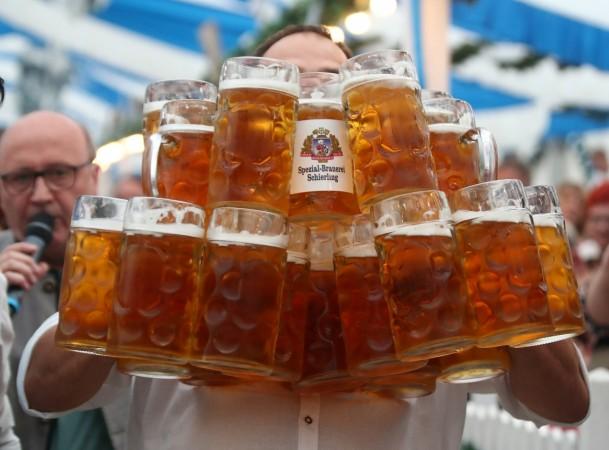
The Bengaluru-based United Breweries (UB) is planning to introduce zero alcohol beer by early next year.
With this move, the country's largest beer maker plans to enter markets where alcohol is prohibited and use its Bihar-based brewery to achieve optimum capacity, company Managing Director Shekhar Ramamurthy told Economic Times.
"We are working on a project to introduce non-alcoholic malt-based beverages. We will manufacture these products at our Bihar site," Ramamurthy said.
He further said that the company is presently at the early stage of development and will roll out the product by early next year.
The UB Group accounts for more than half India's beer market, and is currently working on the name of the product. "No, this is not the same as the Heineken one," the business daily quoted a person with direct knowledge of the development as saying.
Earlier in May, Dutch brewer Heineken launched an alcohol-free version of its namesake beer with half the calories of a standard Heineken in 14 markets globally, Reuters reported.
Last year, Heineken has raised its holding in UB group to 43 percent by buying 24 million euros ($27 million) worth of additional shares.
For UB, the move will help the Kingfisher-maker push sales growth by re-establishing its presence in key states such as Kerala, Madhya Pradesh, Bihar, West Bengal, Jharkhand, Chhattisgarh and Tamil Nadu which have either banned liquor or nationalised liquor retail trade, ET reported. These states combined accounted around 40 percent of the total alcohol consumption in India.
UB, along with competitors like Carlsberg, Diageo and Molson Coors, had closed down more than 70 operational distilleries and breweries in Bihar, after the state government imposed statewide total liquor prohibition.
The prohibition decision hit the operations of these companies as the units served not just the state's demand alone, but also as a manufacturing hub for the neighbouring markets.
Brewery companies have always been keen on investing in Bihar mostly because of cheap labour and abundance of raw materials like barley and wheat.
Experts believe that the new product could prove to be tricky for the company in the value conscious Indian market where strong beer comprises 85 percent of sales, the Economic Times reported.
"It depends on how the product tastes, price and positioning of the product. In the West, in various instances, similar products have failed on account of taste," Abneesh Roy, senior vice-president at Edelweiss Financial Services told ET. "(But) the zero alcohol beers could offer brewers higher margins because of lower taxes and become a go-to-brand for health conscious and religious individuals," he added.

















